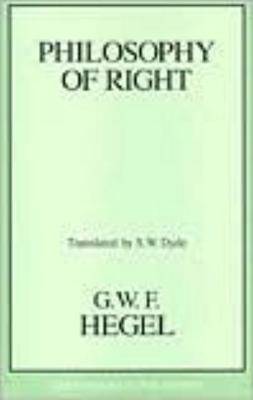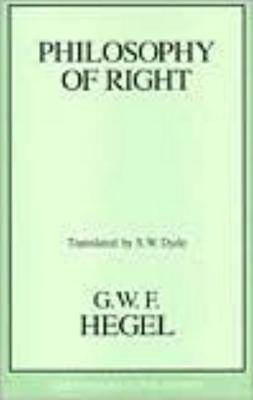
- Afhalen na 1 uur in een winkel met voorraad
- Gratis thuislevering in België vanaf € 30
- Ruim aanbod met 7 miljoen producten
- Afhalen na 1 uur in een winkel met voorraad
- Gratis thuislevering in België vanaf € 30
- Ruim aanbod met 7 miljoen producten
Omschrijving
Among the most influential parts of the philosophy of G.W.F. Hegel (1770-1831) were his ethics, his theory of the state, and his philosophy of history.The Philosophy of Right (1821), the last work published in Hegel's lifetime, is a combined system of moral and political philosophy, or a sociology dominated by the idea of the state. Here Hegel repudiates his earlier assessment of the French Revolution as "a marvelous sunrise" in the realization of liberty. Rejecting the republican form of government, he espouses an idealized form of a constitutional monarchy, whose ultimate power rests with the sovereign.
Specificaties
Betrokkenen
- Auteur(s):
- Uitgeverij:
Inhoud
- Aantal bladzijden:
- 395
- Taal:
- Engels
Eigenschappen
- Productcode (EAN):
- 9781573921053
- Verschijningsdatum:
- 1/10/1996
- Uitvoering:
- Paperback
- Formaat:
- Trade paperback (VS)
- Afmetingen:
- 141 mm x 216 mm
- Gewicht:
- 458 g

Alleen bij Standaard Boekhandel
+ 41 punten op je klantenkaart van Standaard Boekhandel
Beoordelingen
We publiceren alleen reviews die voldoen aan de voorwaarden voor reviews. Bekijk onze voorwaarden voor reviews.








